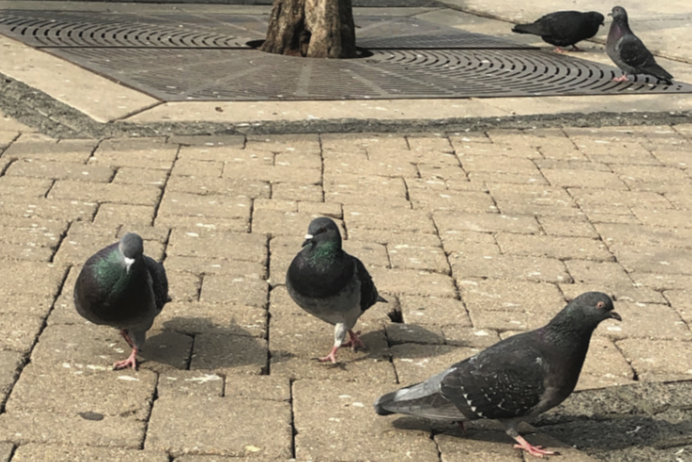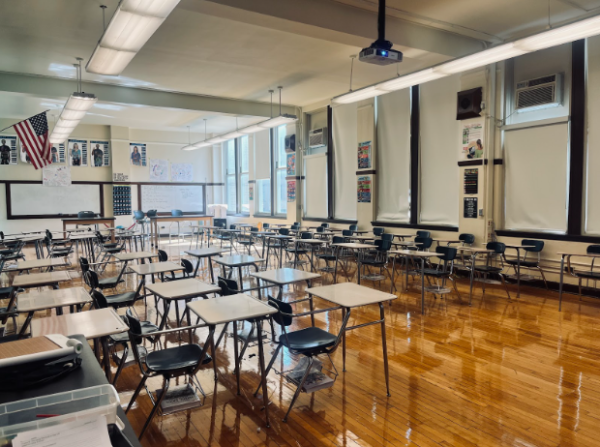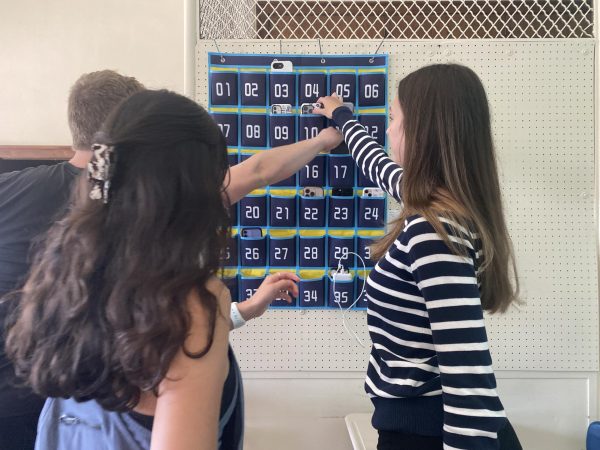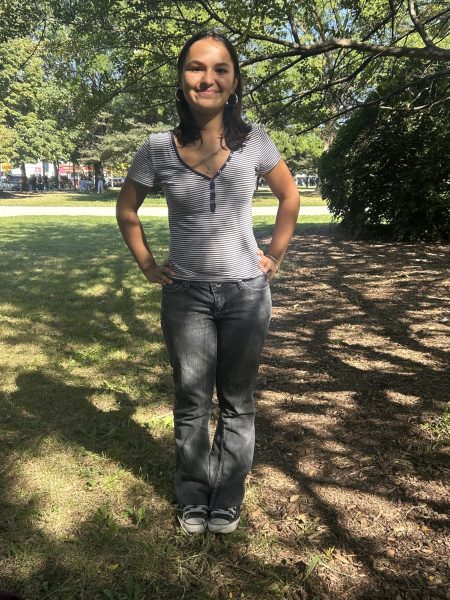How Chicago is stopping the bird population from ‘flying’ out on us
As a teacher starts their lecture in their fourth floor classroom, students begin to focus in. Suddenly, an unfortunate distractor enters the picture. Heads turn at the sound of a thud— a bird just collided with one of the classroom windows.
While this may seem like a horrific sight, it is a common situation. Across the United States, more than 988 million birds die annually after colliding into windows, according to the Washington Post.
Chicago’s downtown skyscraper-heavy architecture is no stranger to bird-to-window collisions.
Brian Hopkins, Chicago’s 2nd Ward Alderman, proposed his “Bird Friendly Design Ordinance” earlier this year.
Ava Hedeker, Div. 179,recently found out about the Bird Friendly Design Ordinance and has great concern for this issue.
“I think for sure it has become a problem, because if birds are actually dying in such large amounts by accident when they shouldn’t be, it’s an issue,” Hedeker said.
Grant Koch, Div. 956, President of Lane’s Environmental Club, has researched this issue and the possible reasons why a bill like this has not yet been created or passed.
“People don’t see how the issue will affect them. Maybe they think that ‘Oh, they’re birds. What do they matter?’” Koch said. “But if they keep dying at this rate, the effects will become noticeable. So, it’s better to prevent it now than trying to fix it later.”
Not only will the loss of birds affect humans, but it may alter ecosystems in a negative way, according to Kock.
“Birds are very important for the ecosystem and the environment,” Koch said. “They are important seed distributors; they’ll eat the seeds and help forestry grow by pooping [the seeds] out. They are also important for pest control as well because they eat mosquitos and other insects and control their population.”
The introduced Hopkins Bird Friendly Design Ordinance was created with hopes to put an end to the large number of bird deaths in Chicago, according to the Bird Friendly Design Ordinance.
The proposed building ordinance would apply to any buildings that are not homes, townhouses, two flats or buildings with less than six units, and will call for building/renovating buildings with bird-safe materials and designs.
This includes buildings being glass-sheathed or having other bird-safe features like etching on the windows of buildings that are at least 36 feet tall.
Not only would this ordinance apply to about five percent of the buildings in Chicago, but these buildings would also follow a lights-out policy by having nonessential exterior lights shut off during the nighttime.
John Geahan, a political director for Chicago’s 2nd ward, is helping Alderman Hopkins fight for the bill.
“It’s a small piece of an ecosystem when you lose a bird, but you don’t know what kind of an impact that bird can have on the environment— to lose or not lose a bird,” Geahan said.
“Chicago is the number one city for migratory and non-migratory bird deaths caused by collisions into buildings,” Geahan said. “We expect a reduction in cost for bird-friendly materials used, as supply catches up to market demands, to come out of this.”
Koch noted that there are also simple, smaller-scale things anyone in Chicago can do to help birds from colliding with windows.
“There’s something called bird tape, which you can buy for only about three dollars, and you can put it on your windowsill and they’re able to see it,” Koch said. Hanging things like chimes or things that obstruct the window’s view can help. Also, putting strings or netting can make your window more visible [to birds].”
While the bill is not to be discussed at a city council meeting until May 22 Chicagoans can still help now, according to Geahan.
One can do this by getting politically involved and creating awareness about the matter, according to Hedeker.
“[There] definitely should be more awareness about this spread, because I don’t think enough people know about it,” Hedeker said.
Geahan noted that teens can quickly take about 5-10 minutes to spread local awareness and get politically involved within their ward.
“Individuals who are passionate about helping to curtail bird deaths should look to their aldermen and put in a phone call to explain why this is an important matter,” Geahan said.
While Chicago may have led in bird deaths caused by window collisions, the future still holds opportunities and the possibility of changing that statistic, according to Koch.
Koch said, “Definitely, thinking about the future of the birds, us and our ecosystem like we are all connected, is something to focus on”.
Your donations directly fund the Lane Tech student journalism program—covering essential costs like website hosting and technology not supported by our school or district. Your generosity empowers our student reporters to investigate, write, and publish impactful stories that matter to our school community.
This website is more than a publishing platform—it's an archive, a research tool, and a source of truth. Every dollar helps us preserve and grow this resource so future students can learn from and build on the work being done today.
Thank you for supporting the next generation of journalists at Lane Tech College Prep!

Ella, a senior, is enjoying her third and final year with The Champion (formerly The Warrior). She continues to explore the world of literature and history...




